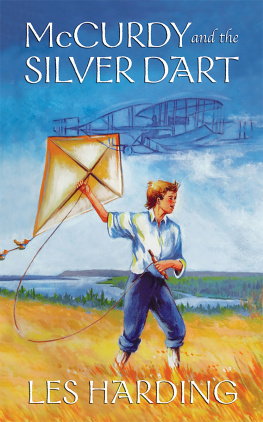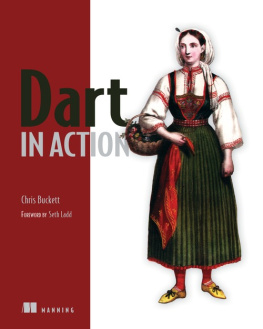McCurdy and
the Silver Dart
by Les Harding
McCurdy and
the Silver Dart
by Les Harding
Cape Breton University Press
Sydney, Nova Scotia, Canada
Copyright 2014 Les Harding
First published 1998.
All rights reserved. No part of this work may be reproduced or used in any form or by any means, electronic or mechanical, including photocopying, recording or any information storage or retrieval system, without the prior written permission of the publisher. Responsibility for the research and the permissions obtained for this publication rests with the author. Cape Breton University Press recognizes fair dealing uses under the Copyright Act (Canada).
Cape Breton University Press recognizes the support of the Province of Nova Scotia, through Film and Creative Industries Nova Scotia, and the support received for its publishing program from the Canada Council for the Arts Block Grants Program. We are pleased to work in partnership with these bodies to develop and promote our cultural resources.
Cover image: Patsy MacKinnon
Cover: Cathy MacLean, Chticamp, NS
Layout: Gail Jones and Laura Bast, Sydney, NS
eBook development: WildElement.ca
Harding, Les, 1950-, author
McCurdy and the Silver Dart / Les Harding. -- New edition.
Includes bibliographical references.
Issued in print and electronic formats.
ISBN 978-1-927492-77-2 (pbk.).--ISBN 978-1-927492-78-9 (pdf).--
ISBN 978-1-927492-79-6 (epub).--ISBN 978-1-927492-80-2 (mobi)
1. McCurdy, J. A. D. (John Alexander Douglas), 1886-1961--
Juvenile literature. 2. Silver Dart (Airplane)--Juvenile literature.
3. Aeronautics--Canada--History--Juvenile literature. I. Title.
TL540.M23H37 2014 j629.13092 C2014-900528-8
C2014-900529-6
Cape Breton University Press
PO Box 5300, 1250 Grand Lake Road
Sydney, NS B1P 6L2 CA
www.cbupress.ca
Contents
Chapter 1
Helping the Great Inventor
J ohn Alexander Douglas McCurdy was born on August 2, 1886, in the hamlet of Baddeck, Cape Breton Island. His father, Arthur, was a part-time inventor who held a valuable patent for developing photographic film. His grandmother had been a distinguished member of the Nova Scotia Assembly for over forty years. An aunt, Georgina McCurdy, was one of the founders of the Victorian Order of Nurses.
Because Douglas came from a family of high achievers, everyone in Baddeck sensed he was destined for greatness but in what field? Perhaps he would be a scientist or an inventor like his father. As a child, Douglas, as he was called, was filled with an insatiable curiosity to know how things worked. But he was also stubborn and mischievous.
Though no one realized it yet, Douglass course in life had already been set. A year before his birth, in the summer of 1885, a chance and seemingly unimportant meeting occurred which was to have a profound effect on the future of Douglas McCurdy.
The editor of the local newspaper, The Cape Breton Island Reporter , was angrily shaking a newfangled gizmo lately installed in his office. The gizmo, the first in that part of Cape Breton Island, was called a telephone. It was not working, although it had been in fine working order earlier that morning. What could have gone wrong?
The editor, preoccupied as he was, did not notice the approach of a tall, well-dressed, bewhiskered stranger who was peering at him through the window with evident interest. Without waiting to be asked, the stranger entered the office.
Having trouble with your telephone? the stranger asked in a soft Scottish accent.
The editor, startled at the approach of the stranger, replied that indeed he was having trouble and feared the would have to travel all the way to Halifax to get the instrument repaired.
Let me have a look at it, said the stranger, with a hint of a smile on his face. The stranger glanced at the receiver for barely a moment. Expertly, he unscrewed the mouthpiece, flicked a dead fly out and reassembled it.
Itll work now, he said.
The editor placed a call. Sure enough, the telephone was as good as new.
The dumbfounded editor could not resist asking the question, How do you know so much about the telephone?
I invented it.
The newspaper editor was Douglas McCurdys father and the stranger was Alexander Graham Bell, the man who had invented the telephone only nine years before.
Bell was in Cape Breton Island looking for a place to build a summer home. At the age of thirty-eight he was already a wealthy man and one of the most famous inventors in history. Bell eventually chose to settle in Baddeck because of its resemblance to Scotland, the land of his birth. Near the village Bell purchased a tract of land from McCurdys grandfather on which he constructed a fine home called Beinn Bhreagh, which in the Gaelic language of Scotland means beautiful mountain.
It was here that Bell built a laboratory to carry on his scientific experiments into the possibility of manned flight. Douglass life would be changed because of Bells settling in Baddeck. He and Bell became great friends. Growing up at Bells side helped Douglas choose what work he would do when he became older.
Bell was determined to crown his career as an inventor with the construction of a heavier-than-air flying machine. He was one of many researchers trying to discover the secrets of wind currents and air pressure. As a small boy Douglas took an active role helping the great Dr. Bell on experiments with different shaped flying kites. How many scientists and professors the world over would have gladly traded places with the boy from Baddeck?
Douglas also participated in some of the earliest attempts ever made to record the human voice on wax discs. McCurdy took an impish delight in watching Dr. Bell astonish the local farmers by playing back to them the Gaelic songs they had been coaxed into singing moments before.
Because of the presence of Bell, important visitors were drawn to Baddeck. Among these were Lord Aberdeen, the Governor General, and Sir Wilfrid Laurier, the prime minister of Canada. People came from all over Cape Breton Island to welcome such distinguished visitors. Somehow, amid the thronging crowds of adults, Douglas succeeded in getting close enough to Prime Minister Laurier to shake his hand. The boy was so thrilled at the honour that he was reluctant to wash his hand for some time after.
On another occasion, Douglas, while visiting Beinn Bhreagh, was introduced to two famous scientists: Professor Samuel Langley, secretary of the Smithsonian Institute in Washington, and Simon Newcomb, born in Nova Scotia and professor at Johns Hopkins University in Baltimore, Maryland. Two more opposing personalities could not be imagined. It was interesting that they were visiting Dr. Bell at the same time. Langley shared Bells belief, and shared it passionately, that someday it would be possible for people to fly in heavier-than-air flying machines. He had already conducted a number of important experiments to prove his point. Newcomb, on the other hand, was just as convinced that human flight in general, and Langleys theories in particular, were quite impossible. They simply violated the laws of physics.


















